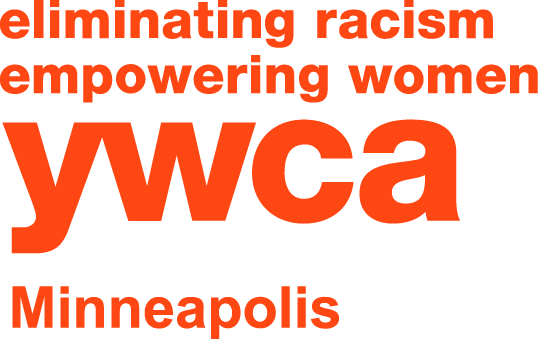How to Decolonize Your Thanksgiving
Let's Start with Myth-Making
The American holiday of Thanksgiving is a prime example of myth-making—narratives based largely on feel-good lore that is often repeated but at odds with reality and history. Generations have learned in school that the U.S. holiday of Thanksgiving honored a harmonious exchange of food and culture between the pilgrims (colonizers) and Native Americans. Perspectives on this vary wildly. Some contend no Native Americans were at the first Thanksgiving, which was a harvest feast that actually celebrated the massacre of 700 members of the Indigenous Pequot nation.
Erasure
As the origins of Thanksgiving are debated, we must consider how the “land of the free and home of the brave" was acquired by colonizers. Thanksgiving, as one of the primary genesis stories of the American founding, is an ongoing reminder that as a nation we still have to reckon with the lasting effects of the attempted genocide of Indigenous peoples, the harmful displacement of children to boarding schools and the prevailing disregard for government-issued treaties. Celebrating colonialism, which is central to the historical observance of Thanksgiving, does not acknowledge its depraving effects on Indigenous people.
What is Decolonization?
To fully honor the history of our nation, let us turn our sights toward the practice of decolonization. Global Solidarity Local Action defines decolonization as the “cultural, psychological, and economic freedom” for Indigenous people with the goal of achieving Indigenous sovereignty — the right and ability of Indigenous people to practice self-determination over their land, cultures and political and economic systems.For non-Indigenous people thinking about a decolonizing practice around this time of year, perhaps it is best to begin to focus locally and build pathways that consider national and global impacts and efforts as well.
Nomenclature
Our state name of Minnesota originates from the language of the Dakota Nations. The name derives from the Dakota’s word describing the Minnesota River; mnisota, meaning “cloudy, muddy water” or “sky-tinted water.” Knowing this is to acknowledge origins of the land as that of Indigenous people.In Minneapolis, there have been successful efforts to recognize and honor Indigenous knowledge and histories. In January 2018, the Minnesota Department of Natural Resources (DNR) made Bde Maka Ska the official state name for the lake formerly known as Lake Calhoun. John C. Calhoun, its former namesake, was a violent slave owner. The move to rename the lake is an important stepping stone in reorienting our values while acknowledging Indigenous people who were the original stewards of this land.
Activism
As we rejected the myth of Christopher Columbus, by proclaiming that observance day as Indigenous Peoples Day in its stead, it's logical that statues as celebrated symbols of colonialism be challenged as well. This is what Indigenous activist Mike Forcia did, when he coordinated the takedown of the Christopher Columbus statue located at the state capitol. This event was documented in a 2020 article posted in Smithsonian Magazine by contributor Erin L. ThompsonVideos of a crowd tugging the statue off its base, provided some of the defining visuals of summer 2020. The scene played out on the news so often that you’d be forgiven for assuming that more monuments shared this fate at the hands of activists. In reality, of the 214 monuments that came down after the death of George Floyd, 179 (over 80 percent) were removed officially, following decisions by local authorities.Protesters pulled down only 13 Confederate monuments and 22 monuments to other controversial historical figures like Columbus. Efforts like those of Forcia matter, particularly because they present moments where activism interrupts the normative myths we tell ourselves. It also serves as the catalyst for governments to follow suit on moral grounds. This Thanksgiving, notice the conversations and stories being shared and consider what new stories can be included by honoring our full American story.
Environmental Threats
Finally, we must turn sights to the ways big businesses, oil pipelines for example, disrupt Indigenous communities. To this end, Minnesota has been a unique site for spotlighting Indigenous activism. In June of 2021, NPR covered a story titled "Indigenous Activist On Why Groups Are Protesting The Line 3 Pipeline In Minnesota."The article sheds light on Enbridge, a Canadian oil company that is looking to replace its Line 3 pipeline with a new route in spite of many Indigenous and environmental groups wanting to completely shut down the initiative contending the pipeline not only threatens food and water resources but also will accelerate climate change damage. More than a hundred activists have been arrested so far.Below are resources for anyone who is looking to learn more, plug into a day-to-day decolonizing practices and ways to get involved during November and beyond.
Finally
As we gather this year with family and kin in the spirit of giving, decolonizing Thanksgiving means acknowledging the harmful effects of colonization (as celebrated in the myth of the prevailing Thanksgiving story) and...
"...to move past one-dimensional representations of “pilgrims and Indians. In the spirit of unity, we can instead focus Thanksgiving on common values: generosity, gratitude, and community." —Cultural Survival.org
- 9 Ways to Decolonize and Honor Indigenous Peoples on Thanksgiving
- What is decolonization, why is it important, and how can we practice it?
- Remaking Historic Fort Snelling
- Rematriation: Awareness and Recognition of Indigenous Land
- Native-Led Businesses and Organizations to Support
LEARN MORE ABOUT YWCA RACIAL JUSTICE PROGRAMSDONATE TO YWCA MINNEAPOLIS
